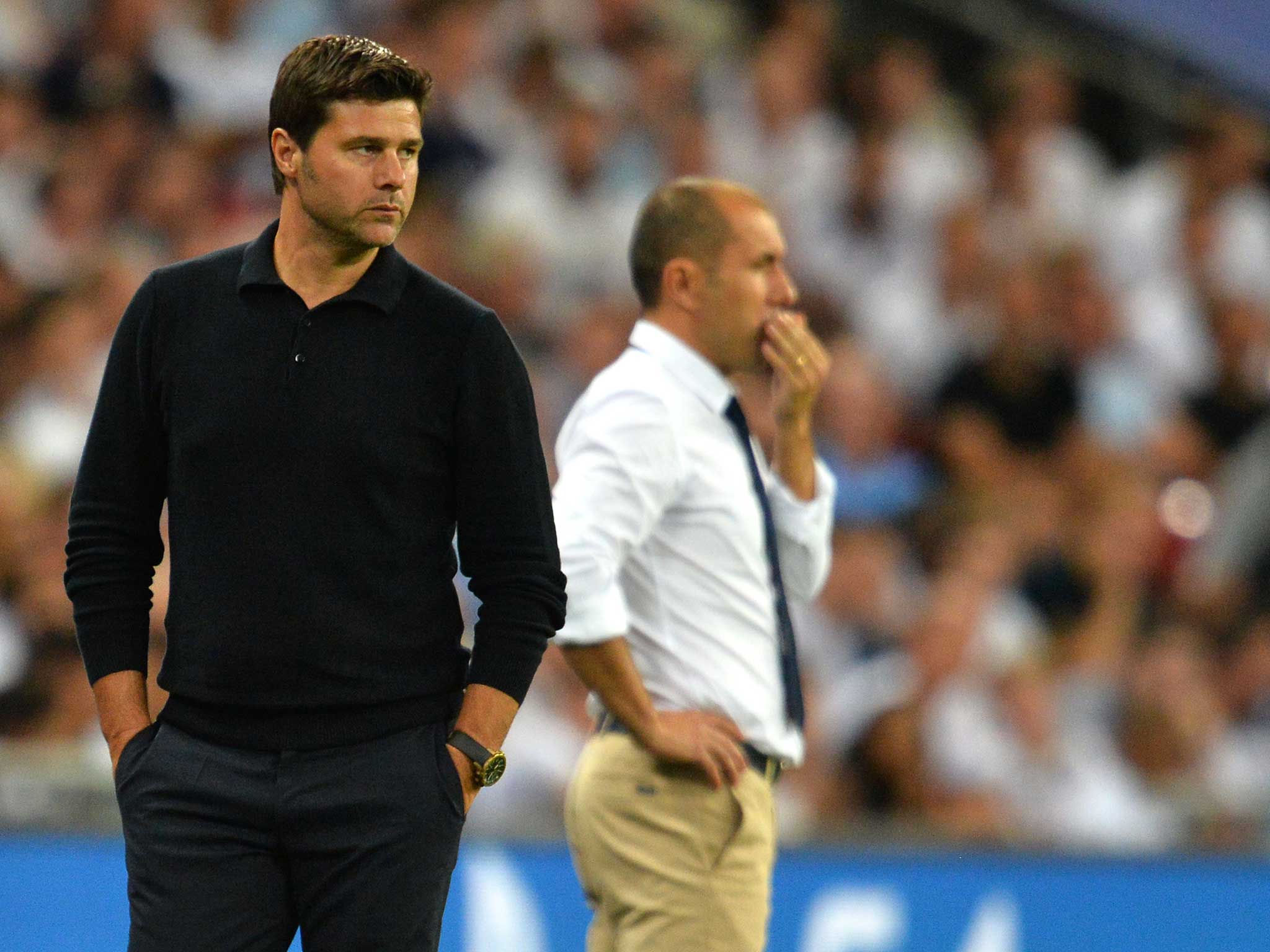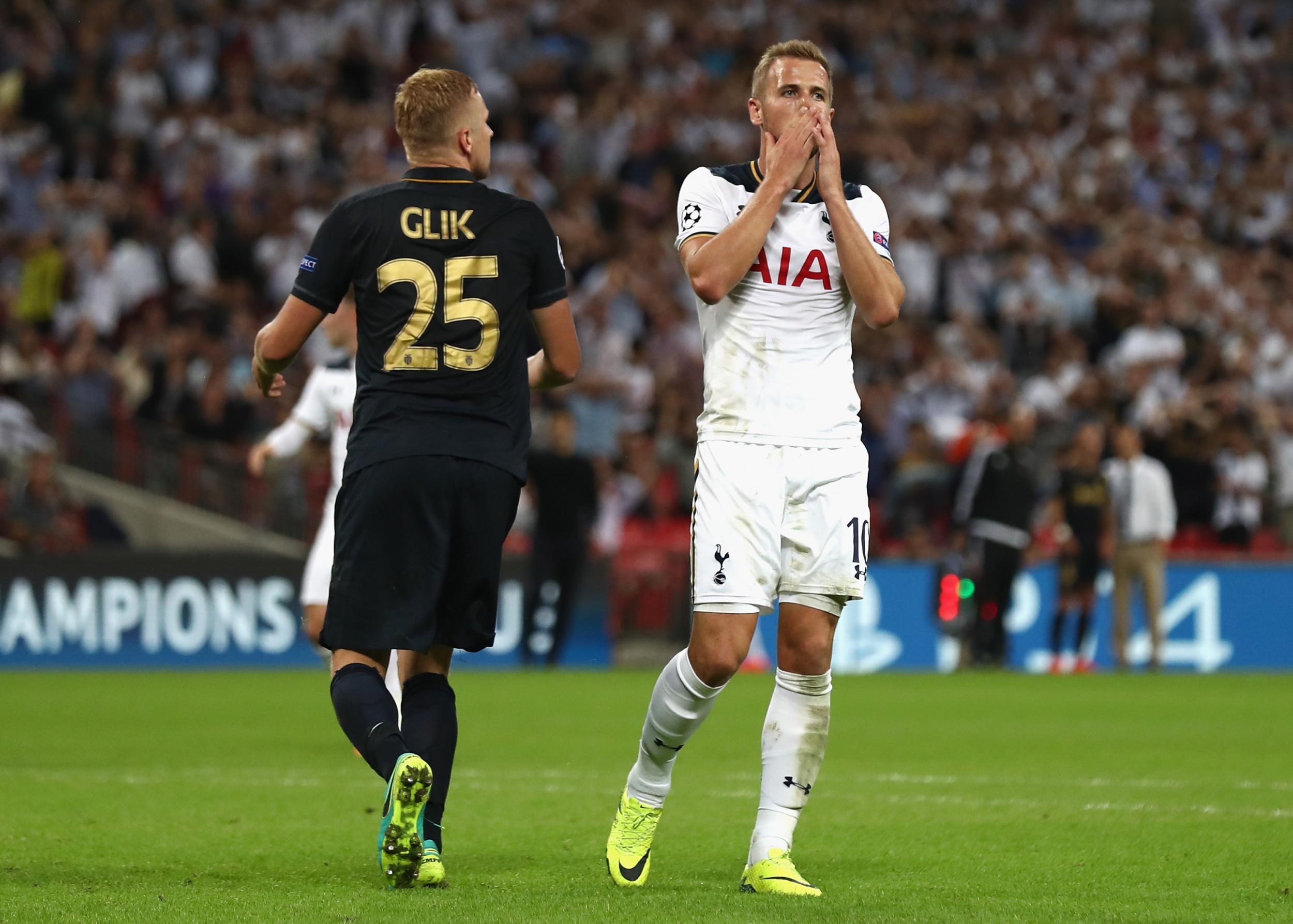Tottenham news: Why Mauricio Pochettino knows that his players need some home truths after Monaco defeat
The Spurs coach was once driven to tears by his hero Marcelo Biesla, which is why he knows he has to be brutally honest with his Spurs players who are still growing up

Your support helps us to tell the story
From reproductive rights to climate change to Big Tech, The Independent is on the ground when the story is developing. Whether it's investigating the financials of Elon Musk's pro-Trump PAC or producing our latest documentary, 'The A Word', which shines a light on the American women fighting for reproductive rights, we know how important it is to parse out the facts from the messaging.
At such a critical moment in US history, we need reporters on the ground. Your donation allows us to keep sending journalists to speak to both sides of the story.
The Independent is trusted by Americans across the entire political spectrum. And unlike many other quality news outlets, we choose not to lock Americans out of our reporting and analysis with paywalls. We believe quality journalism should be available to everyone, paid for by those who can afford it.
Your support makes all the difference.It was the summer of 1998 and Mauricio Pochettino had just enjoyed the best season of his career. Barcelona newspaper El Mundo Deportivo had declared the stocky mulletted hatchet-man the best defender in Spain, in his fourth season there since leaving Argentina.
His coach at Espanyol, Jose Antonio Camacho, had gone to Real Madrid, but even better news was to come. Espanyol replaced Camacho with Marcelo Bielsa, Pochettino’s ‘footballing father’, the man who discovered him in the dead of night as a teenager and then won two Argentine titles with a young Pochettino at Newell’s Old Boys.
Pochettino could not wait to be reunited with Bielsa, especially given how well he now thought he was playing. Bielsa arrived and asked his protégé how he judged those breakthrough 1997-98 displays. “From 0 to 10, my season was maybe seven or eight,” replied Pochettino, who was just being humble. In his head he thought he was worth nine or 10. But Bielsa had his own view: “You were s***.”
Pochettino’s face sunk. His mentor Bielsa spelled out to him everything he had done wrong the previous season, no matter what all the plaudits said. “If you perform like you did last season then you cannot play for me,” Bielsa snapped. “And you cannot play for the Argentina national team.” Pochettino drove home in tears.
But Bielsa was right. Pochettino realised that yes, he was mierda. So he did everything he was told to improve. Two years later he had won the Copa del Rey with Espanyol, then he made a very lucrative move to Paris Saint-Germain, one that changed his life. And he fulfilled his dream of playing for Argentina at a World Cup, even if his most famous moment in Japan was conceding that penalty to Michael Owen in Sapporo.
Bielsa only stayed at Espanyol for six games in 1998 before he took the Argentina job. But he did not need to be there any longer. He had made his impact.
18 years on, Pochettino told this story on Friday afternoon at his press conference in rainy Enfield. He is now the Bielsa figure at Tottenham, responsible for his own cohort of Pochettinos. And he knows that sometimes with young players they need to be told not to believe their own hype.
“When I believed I was the star man the big offer never arrived for me,” Pochettino said. “But when I changed in my mind, and in my lifestyle, and realised this reality: national team, PSG, and other teams wanted me. This is an example. Our players are young, that is why we are here, to try to be tough. But to be right. Not to be tough just to be tough, and to be aggressive. To give good advice, that is the most important.”
That is how Pochettino sees his job at Tottenham, now in his third year there. He has to give some fairly blunt advice to his players, to help them make that final step after two years of impressive improvement.
“I was a person that liked the reality, who did not like to be lied to,” Pochettino remembered. “If I was s***, I was s***. But I need to know sometimes. When you are young, you need to know the reality. Because when you are in your bubble, you believe everything you do is right. Sometimes you need people who say ‘come on, what happened.’”
That is exactly what Pochettino has been doing all week at Tottenham. On Wednesday night his players froze on the big Wembley pitch, losing their first Champions League game to Monaco. Pochettino was unusually frank in his post-match comments, criticising the players’ lack of passion and aggression. Then, having watched the match three more times, and done 12 hours of video analysis, he decided on Friday afternoon to hammer the players again. “I can repeat every word from after the game,” he said, “I can confirm that we did not show passion.”
Pochettino issued a challenge to his players to prove him wrong, a spiky public critique of the sort he does not usually make. It was a reminder that, while Pochettino’s football resembles Pep Guardiola’s, some of his personal approach is closer to Jose Mourinho.
For Pochettino, “football means passion and emotion”. The question is how he gets his players to show the right emotions on the pitch. The word Pochettino always uses is “aggression” but he does not mean it in a violent sense.
“Not aggression with the opposition, not to punch someone,” Pochettino explained. “But to be more aggressive with the ball, when you have it at your feet you want to score, you are determined to show. We did not show this type of action in the first half [against Monaco].”

Spurs host Sunderland on Sunday and will welcome back Mousa Dembele, for his first start after his six-game ban for eye-gouging Diego Costa in May. That is the difference between good aggression and bad aggression. “Mousa knows that one thing is to play aggressive, tackle, go to the ball and be honest on the pitch,” Pochettino said. “Another thing is to do what he did.”
Pochettino joked last month that his team “do not exist” without Dembele, and they have certainly missed him in the five games so far this season. He only came on at half-time against Monaco, and his absence explains why Spurs have struggled to get their game flowing so far this season.
But there was no great condemnation from Pochettino for Dembele here. Such an emotional and occasionally violent player could not give that. He told the story of one red-card at Paris Saint Germain, when even at 30 years old he flew into a neck-high challenge on Lille’s Philippe Brunel and paid the price. Or Maradona, another hero of Pochettino’s, sent off in the 1982 World Cup for a violent foul on Brazil’s Joao Batista da Silva. “Many things like this have happened like this in the history of football,” he said, “when the heart is beating.”
Join our commenting forum
Join thought-provoking conversations, follow other Independent readers and see their replies
Comments